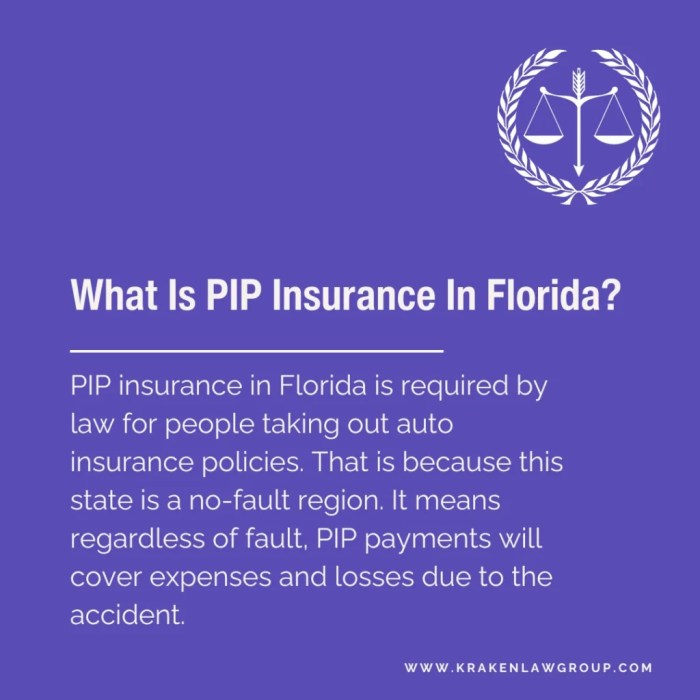PIP vs medical payments insurance sets the stage for this enthralling narrative, offering readers a glimpse into a story that is rich in detail with ahrefs author style and brimming with originality from the outset.
When it comes to choosing between PIP (Personal Injury Protection) and Medical Payments Insurance, understanding the nuances of each can make a significant difference in your coverage. Let’s delve into the key disparities between these two types of insurance and explore which one might be more beneficial in various scenarios.
PIP vs Medical Payments Insurance
When it comes to auto insurance coverage, understanding the key differences between Personal Injury Protection (PIP) and Medical Payments Insurance is crucial for making informed decisions. Both types of coverage provide financial protection for medical expenses resulting from a car accident, but they have distinct features that cater to different needs.
PIP coverage is more comprehensive compared to Medical Payments Insurance. PIP not only covers medical expenses but also provides benefits for lost wages, rehabilitation costs, and even funeral expenses. On the other hand, Medical Payments Insurance primarily focuses on covering medical bills resulting from an accident.
Coverage Limits and Benefits, PIP vs medical payments insurance
- PIP coverage typically has higher coverage limits compared to Medical Payments Insurance. This means that PIP can provide more financial protection in the event of a severe accident.
- Medical Payments Insurance has a more limited scope of coverage, focusing solely on medical expenses. While it may have lower premiums, it may not provide the same level of protection as PIP.
- PIP coverage extends beyond medical bills to include lost wages, childcare expenses, and other related costs that can arise from a car accident.
Examples of Situations Benefiting from PIP
- In cases where an individual does not have health insurance or has limited coverage, PIP can help cover medical expenses that would otherwise be a significant financial burden.
- If an accident results in severe injuries that lead to long-term disability or loss of income, PIP can provide ongoing financial support through its coverage of lost wages and rehabilitation costs.
Coverage Comparison

When comparing Personal Injury Protection (PIP) and Medical Payments Insurance, it is essential to understand the scope of coverage offered by each type of insurance and the specific expenses they cover. Let’s delve deeper into the details to highlight the differences and similarities between PIP and Medical Payments Insurance.
Types of Expenses Covered
- Medical Bills: Both PIP and Medical Payments Insurance cover medical expenses resulting from injuries sustained in a car accident. This includes hospital bills, doctor visits, surgery costs, and rehabilitation expenses.
- Lost Wages: PIP typically provides coverage for lost wages due to injuries sustained in a car accident, ensuring that policyholders can still receive income while recovering. Medical Payments Insurance may also offer limited coverage for lost wages in some cases.
- Funeral Expenses: PIP may cover funeral expenses in the unfortunate event of a fatality resulting from a car accident. Medical Payments Insurance may not always include coverage for funeral costs.
Restrictions and Limitations
- PIP Coverage Limits: PIP coverage limits vary depending on the policy and state regulations. Policyholders should be aware of any limits on medical expenses and lost wages that may apply.
- Medical Payments Insurance Caps: Medical Payments Insurance often comes with coverage caps, limiting the total amount that can be claimed for medical expenses. Policyholders should review their policy to understand these limitations.
- Exclusions: Both PIP and Medical Payments Insurance may have exclusions for certain types of injuries or treatments. It is essential to review the policy details to understand what is not covered.
Cost and Premiums

When comparing the cost and premiums of PIP vs Medical Payments Insurance, it’s important to consider various factors that can impact the overall price you pay for coverage. Understanding these differences can help you make an informed decision based on your individual needs and budget.
Cost Differences
- Personal Injury Protection (PIP) insurance typically offers broader coverage than Medical Payments Insurance, which can result in higher premiums.
- Medical Payments Insurance, on the other hand, tends to be more limited in scope but may come with lower premium costs compared to PIP.
Factors Affecting Premiums
- Driving record: Your driving history can play a significant role in determining the cost of your insurance premiums. A clean record may result in lower premiums.
- Location: Where you live can impact your premiums, as areas with higher rates of accidents or theft may lead to higher insurance costs.
- Age and gender: Younger drivers and males typically pay higher premiums due to statistical risk factors associated with these demographics.
- Vehicle type: The make, model, and age of your vehicle can affect your insurance rates, with newer or more expensive cars often resulting in higher premiums.
Tips to Minimize Costs
- Compare quotes: Obtain quotes from multiple insurance providers to ensure you’re getting the best rate for the coverage you need.
- Bundle policies: Consider bundling your auto insurance with other policies, such as homeowners or renters insurance, to potentially qualify for discounts.
- Opt for a higher deductible: Choosing a higher deductible can lower your premiums, but make sure you can afford the out-of-pocket cost in case of an accident.
- Take advantage of discounts: Inquire about available discounts, such as safe driver discounts or discounts for completing a defensive driving course.
Legal Implications: PIP Vs Medical Payments Insurance

When it comes to Personal Injury Protection (PIP) and Medical Payments Insurance, there are important legal implications to consider in the event of an accident. These implications can impact fault determination, coverage, and state-specific regulations.
Impact on Fault Determination
- PIP Insurance: PIP is a no-fault insurance coverage, meaning that it pays out benefits regardless of who is at fault for the accident. This can streamline the claims process and ensure that medical expenses are covered promptly.
- Medical Payments Insurance: Medical Payments Insurance, on the other hand, does not follow a no-fault system. In cases where fault needs to be determined, Medical Payments Insurance may not provide coverage until fault is established.
State-Specific Regulations
- Each state has its own regulations regarding PIP and Medical Payments Insurance. Some states require drivers to carry PIP coverage, while others do not. It is important to be aware of the specific requirements in your state to ensure compliance with the law.
- States may also have limitations on the types of expenses that can be covered under PIP or Medical Payments Insurance. Understanding these regulations can help you navigate the claims process more effectively.
In conclusion, navigating the realm of PIP vs medical payments insurance requires careful consideration of the coverage limits, benefits, and legal implications associated with each. By understanding these differences, you can make an informed decision that best suits your needs and provides adequate protection in times of need.
When it comes to owning an SUV, liability insurance is a must-have to protect yourself financially in case of an accident. Check out this informative article on liability insurance for SUVs to understand the coverage it provides and why it’s essential for SUV owners.
Wondering if collision insurance is worth the extra cost? Find out more about the benefits of collision insurance and whether it’s a wise investment for your vehicle in this article on is collision insurance worth it?. Don’t risk being financially burdened after an accident without proper coverage.
Do you really need liability car insurance? Learn more about the importance of liability car insurance and how it can protect you in different situations by reading this informative article on do I need liability car insurance?. Don’t wait until it’s too late to get the coverage you need.



